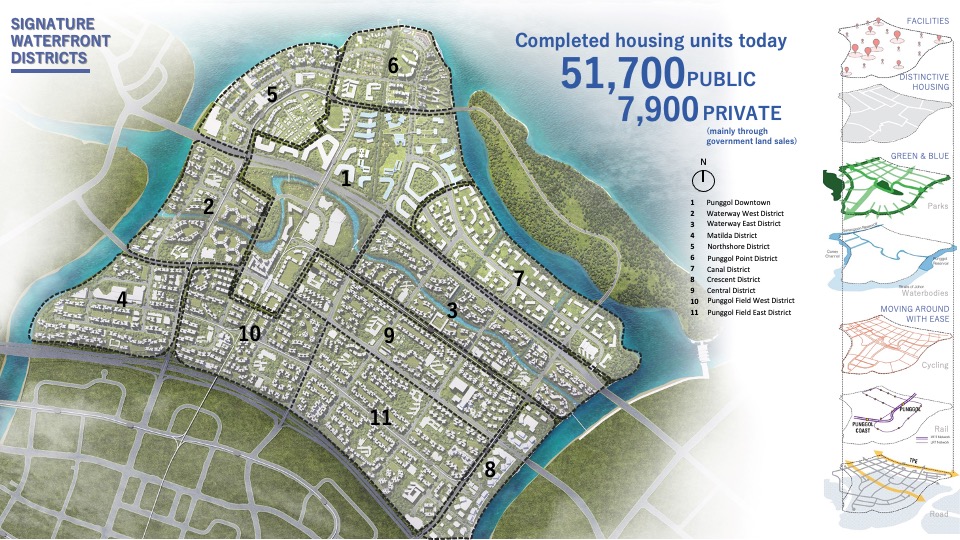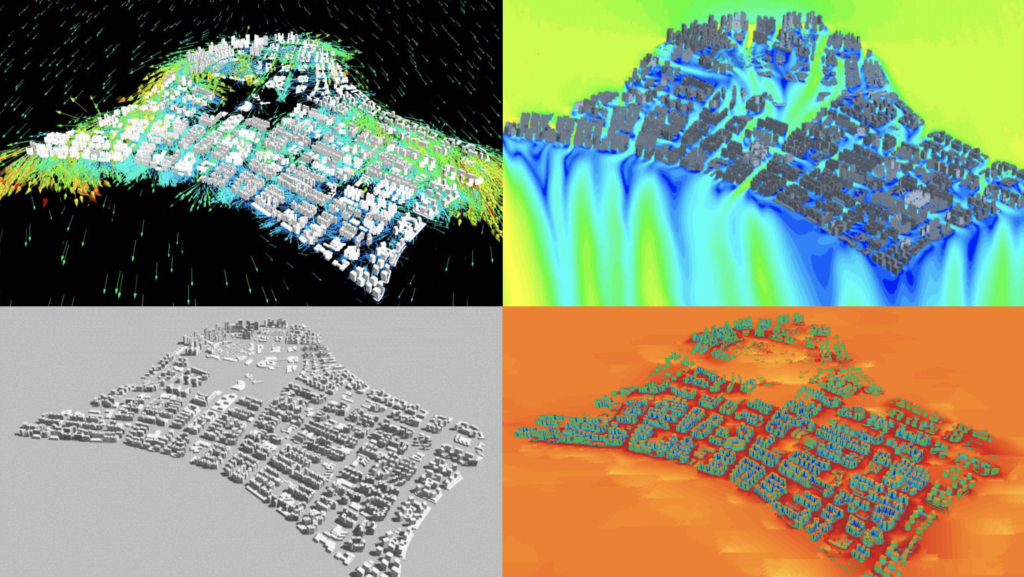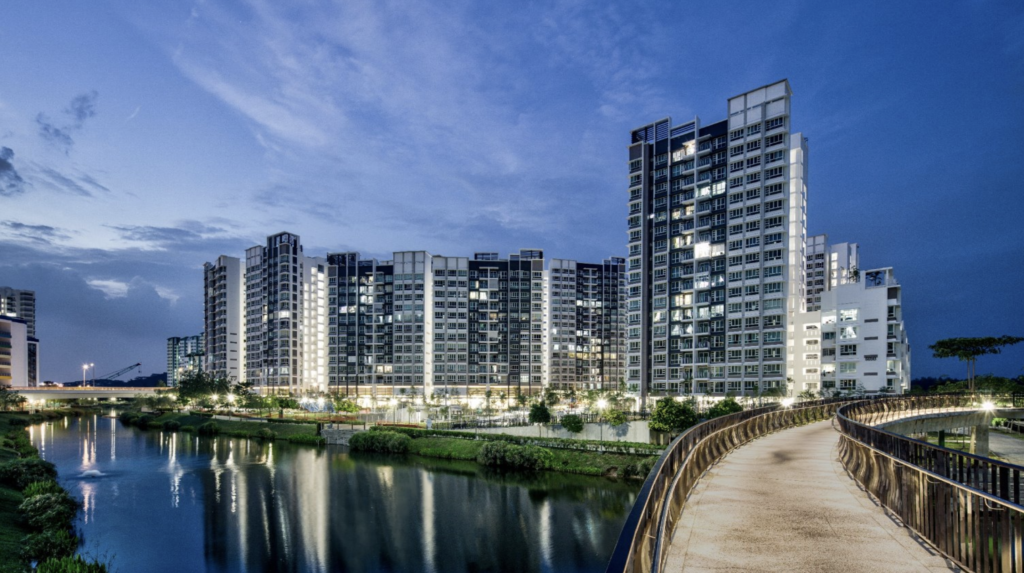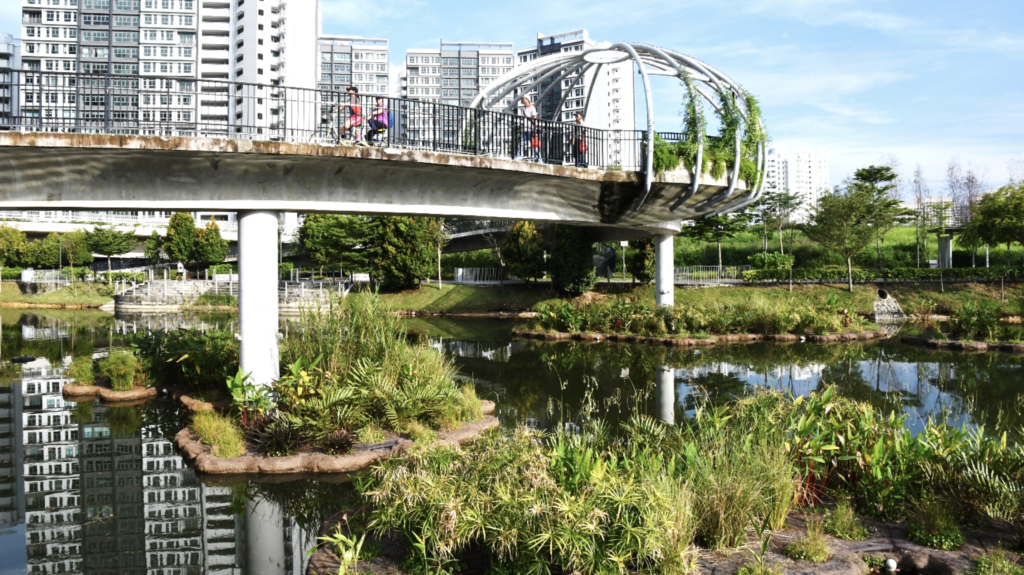Punggol Town

Punggol Town
Developer: Housing & Development Board
Designers: Housing & Development Board
Location: Punggol, Singapore
Built as one of 24 self-contained ‘new towns’ by Singapore’s Housing and Development Board (HDB), Punggol Town is located in the northeast of the island on the site of a former farming and fishing village. Designed to house 300,000 residents in a land area of 844 hectares, it was conceived as a car-lite environment, with public transport options including a light railway for local stops and an MRT station (a second is in the works) that connects to the city centre.
Plans to build Punggol were launched as long ago as 1996, but the project was delayed and reimagined several times. According to one locally-based juror: “As things changed, the master plan was constantly updated. But at the same time, flexibility built into the planning process allowed them to layer on at each stage and pivot to new technology. One of the great stories to come out this therefore is innovation.” 
Because master planning for Singapore’s new towns is controlled centrally, the government chose to designate Punggol as a test bed for new technologies and strategies, especially in the areas of sustainability and smart technology. Ideas trialed originally in Punggol are now being rolled out in other HDB projects throughout the city state.
The town features a wide range of sustainable and/or smart initiatives, including
- solar panels that provide energy to public areas,
- a smart lighting system comprising motion sensors and analytics capabilities automatically adjusts luminosity of LED lights in housing estate common areas. The system also collects and analyses data to predict potential faults.
- rainwater harvesting,
- pneumatic waste management (which conveys refuse via air suction underground to centralised collection points),
- smart parking system,
- smart water pumps,
- smart sockets and distribution boards that allow residents to monitor and potentially reduce household electricity consumption, while also easing integration of commercial smart home solutions in individual housing units.
The HDB has also piloted Urban Environmental Modelling tools to assist in town planning. By simulating the impact of various environmental factors (sunlight, wind, humidity, noise, etc) on town-planning configurations, (streets can be oriented along prevailing wind directions, for example) maximum efficiency and livability can be achieved.
 Urban Environmental Modelling
Urban Environmental Modelling
Another feature that makes Punggol unique is the way the township is built around the theme of water. In particular, the need to connect two nearby rivers to feed the city’s freshwater reservoirs presented planners an opportunity to build a waterway through the centre of town.
Construction was challenging and expensive due to the area’s soft soil, but authorities got maximum bang for their buck by building stepped residential facilities, together with large areas of stepped decking and open space, along the 4.2-kilometre long man-made waterway – a luxurious feature for what normally would be modestly-appointed public housing. The waterway is clean, features recreational watersports, and is flanked on both sides by a 10-metre wide promenade.
 Waterway Ridges (Housing)
Waterway Ridges (Housing)
As with most other parts of Singapore, the tropical climate allows for extensive use of greenery, with natural landscaping distributed liberally around human-scale neighbourhoods of 4,000-6,000 (or even 2,000-3,000) households. Water-sensitive landscaping near water edges helps bring people closer to the water.
 Floating wetlands along Punggol Waterway
Floating wetlands along Punggol Waterway
Efficient and user-friendly connectivity is also a key theme, both for major public transport facilities and pedestrian purposes. Green networks now link all local housing complexes and nearby areas. Some 61 kilometres of walking/cycling paths have been created, including 22 kilometres that hugs coastal areas and waterways.
Another iteration of the master plan, which focused on the town centre and northern part of the town, was delivered in 2012. Construction proceeded remarkably quickly. Although building work continues, and aspects of the town are being constantly reinvented as construction proceeds, more than 60% of work is now complete – a remarkable achievement for a project of such scale and complexity.
Experience gained in the planning process, together with rigorous testing in large-scale, real world settings, make Punggol a replicable model for master-planned communities, both nationally and globally.
